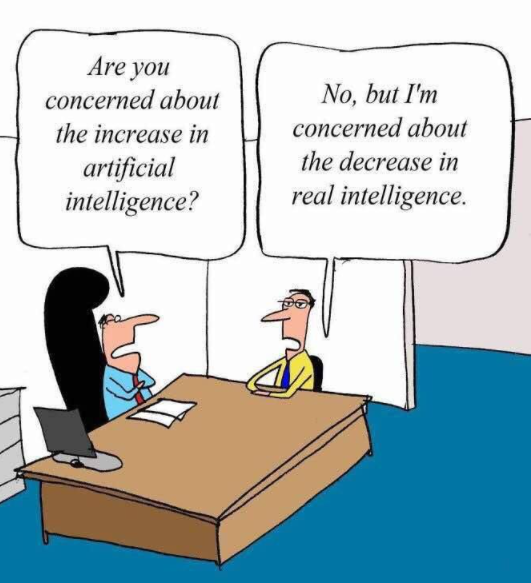 You have all heard the promises of Artificial Intelligence (AI) and live with the reality of some of this with your smart speakers and with the online help systems at banks, airlines, and retailers. They work pretty well for most of us and are certainly better than the endless menus of numeric voice jail others use.
You have all heard the promises of Artificial Intelligence (AI) and live with the reality of some of this with your smart speakers and with the online help systems at banks, airlines, and retailers. They work pretty well for most of us and are certainly better than the endless menus of numeric voice jail others use.
However, if you pay careful attention to these, they check to be sure they are on the right path as you use them. They don’t have the audacity to assume they are offering you what you want and need.
Artificial intelligence attempts to mimic human intelligence.
Let’s take a step back from the brink and consider what we are talking about when we think about this subject. Here are some definitions from Wikipedia:
A very general mental capability that, among other things, involves the ability to reason, plan, solve problems, think abstractly, comprehend complex ideas, learn quickly and learn from experience. It is not merely book learning, a narrow academic skill, or test-taking smarts. Rather, it reflects a broader and deeper capability for comprehending our surroundings—”catching on,” “making sense” of things, or “figuring out” what to do.
I have to admit that the Amazon Echo is pretty good at this. It gets it right much more often than it gets it wrong, but even when it gets it wrong it has a gentle humble spirit to it.
This is a far cry from a black box magic system that purports to know what the right message is to a customer who didn’t even ask to be messaged in the first place. Think about the audacity to suggest something to a customer who never indicated they wanted to hear from you?
Sure, I see Amazon suggesting things to me that align with what I am buying already, but I signed up for that message feed.
What we find does work is when you only offer outbound proactive alerts with the immediate caveat that you just wanted to let someone know there was a significant difference in their use or billing.
